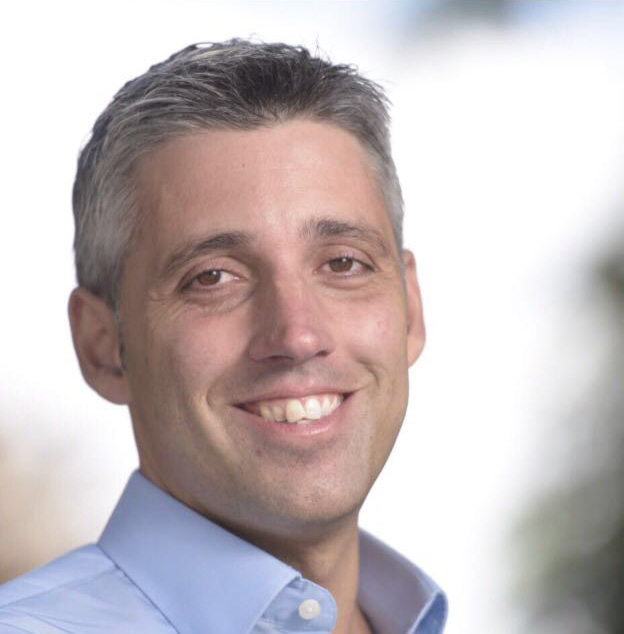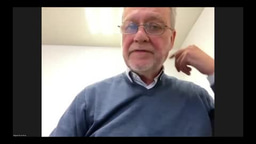On becoming a group leader: David Vilchez, CECAD, Cologne, Germany

What does your research focus on?
In our laboratory, we seek to understand how protein homeostasis (proteostasis), post-transcriptional modifications and cell non-autonomous responses modulate stem cell function, organismal aging, and the onset of age-related neurodegenerative diseases, to uncover mechanisms of regeneration and healthspan extension. To address this ambitious task, we use an innovative approach that combines proteomics, human stem cell research, iPSC-disease modelling and genetics in the model organism C. elegans.

The field of research can sometimes make or break a scientist’s career. How did you go about choosing your field of research?
I think that whoever wants to pursue a career as a scientist should not worry about what the hottest research field is, because it’s always hard to predict how things can change and what will be a hot topic in 10 years from now. My recommendation here is to just choose whatever field of research you are the most passionate about. Although I was always very intrigued by the complexity of neurodegenerative disorders, I was also very excited about plant biology and transgenesis during my undergraduate studies. I finally decided to focus on biomedicine and neurodegenerative disorders, even though I really did consider doing a PhD on plants for some time. I have no idea how my career path would have changed if I had focused on plant research, but for sure I would have also given my best there.
What steps did you take to realize your dream of becoming a PI?
Nowadays, I have the feeling that people really know what they want to do in the future – I get this feeling whenever I interview graduate students, etc. I must admit, I had no idea what I wanted to do when I started my Bachelor's. I decided to study biology because that was the most interesting subject for me in high school (I’m also a fan of comic-books, such as X-men, where there is a lot of science and genetics going on, so that also influenced my decision). By the time I finished my BSc, I didn’t even know what a PhD was. I only embarked on a PhD because I was offered a PhD position due to my good grades. I was intrigued about the research topic and went for it. As soon as I started working in the lab, I realized that I wanted to lead my own research group in the future.
What, in your opinion, are the most important skills required to become a PI?
As a PI, you need a bazillion of different skills and many times the salaries don’t correspond to all these skills. It’s all about passion and motivation for science. Of course, you also need to be good at writing grants/papers and presenting your research in an exciting manner. You also have to be good at administering your funds to get the maximum result, including lab materials, salary payments, etc. Besides a passion for science, you also need a high dose of patience and resilience to overcome failure and try again (there will be many failures during your career: hypotheses that just don’t work, rejections in job applications, grants and paper submissions, etc). In these lines, it’s important to have an open mind, and be ready to change your hypotheses when your experiments don't work out. Sometimes, unexpected results can lead to very exciting and innovative findings. Another important skill is to know how to manage your lab – every person is different, and you have to find and utilize their best abilities so they can succeed. Also, you have to let your team grow in their independent thinking and creativity skills and always appreciate their ideas. It’s also very important to have the skills to find the best people for your team and keep a nice atmosphere in the lab. Ultimately, your success as a PI depends on your team.
What was the hardest part in setting up your laboratory, especially in the early stages?
When I started my lab in 2014, besides being a new PI, I also had to deal with the issues that arose from being one of the first labs in a brand new building, where everything was not completely set up and functional yet. Also, going to a new country where I did not speak the language multiplies all these difficulties exponentially. I was lucky enough to have a fantastic team (a postdoc, Isabel Saez, and a technician, Christina Schindler) who really facilitated my work and basically set my lab. We had to buy all the equipment, which meant getting different offers from different companies to fit into our budget. With my team, we really managed to do that in an effective manner, and after 5 years the lab still runs on this. It’s also important to thank my other colleagues in the building and the administrative offices – they also made my life much easier when I started my lab. To this end, I think it’s very important when you choose and institute to set up your lab, you should make sure beforehand that you will have supportive colleagues and mentors.
As soon as you start running your lab, you will also realize that there is a lot of administrative work to be done that you maybe hadn't expected (obtain ethics permission to work with animal models, human cells, etc). You just need to learn that this is now part of your job as an early stage PI, and that you will have to deal with it in order to have a successful lab.
Finally, a very important factor about running a successful lab is realizing that you now manage a team, and the functionality of this team depends on your ability to juggle all the distinct personalities and abilities of a group of very different people. I think no one prepares you for this, but even if you don’t have the natural skills for it, it’s something you can learn in action.
Failing is usually inevitable in science. How do you deal with your potential failures and use them to your advantage?
Well, as I mentioned above, failure is part of this job. No week goes by where we don't not get negative results, or rejections from grant applications or paper submissions. Besides resilience skills, one very important factor to deal with failure is to enjoy your “victories” (regardless if they are minor steps or big achievements). I also try to keep an open mind for results – when I get negative results or realize that my hypothesis is wrong, if the experiments are well done and the results are clear, I always take this an opportunity to think about a new hypothesis. In my case, my most important achievements came from unexpected results or even opposite results to my original hypothesis.
What would you say is the most fulfilling part of your job as a group leader?
During my PhD and postdoc, the most fulfilling part was being able to say ''Eureka !'', after performing an experiments and looking at the results. Now, I really enjoy seeing the big smiles on the faces of my team members when they come to me with exciting results.
What would be your advice to young scientists who would like to start their own lab?
My main advice is to do research that you are passionate about. If you are passionate about what you do, any problems of issues you encounter along the way can be fixed eventually. Also, I really recommend being patient and putting in the effort in recruiting people who really fit to your lab. As I said before, your success will depend on your team. If you start your lab in a new country, I strongly recommend hiring a lab technician from that country or who has lived there for many years so that they are familiar with the language and administrative procedures.
What are the most important skills that you require from candidates who are applying for a position in your team?
For me, the most important qualifications that I look for in candidates are is that they are motivated and excited to work in scientific research, and can be good team members. Also, that they show independent thinking (or have the ability for this) and creativity.
How do you get the best from your team?
I always try to transmit my passion for science and be excited about the results from my team regardless if the results are negative or positive. Some people need or prefer more advice; others prefer more independence, or work better when they feel that they have more freedom. As a PI, you need to adapt to each person to make them happy in the lab, so they can also be more excited about their experiments.
Have you felt fully prepared for all aspects of your role / Have you undertaken any specific training?
I learned by doing, and I hope that I am a better PI now than when I started my lab. Definitely, some training/courses can help, but in the end, experience and your ability to learn as different situations arise is crucial.
What frustrates or worries you most about research careers currently?
If you want to follow a career in science, sometimes you need to spend a significant amount of time abroad. Although there are many positive outcomes from this, it can also come at the expense of relationships and mean having less interactions with your family and friends.
Another worrisome aspect is that after many years of hard work and personal sacrifices, there is still some uncertainty about your future whereabouts or a permanent job.
Top image in post: Gerd Rohs/Pixabay.com





Join the FEBS Network today
Joining the FEBS Network’s molecular life sciences community enables you to access special content on the site, present your profile, 'follow' contributors, 'comment' on and 'like' content, post your own content, and set up a tailored email digest for updates.